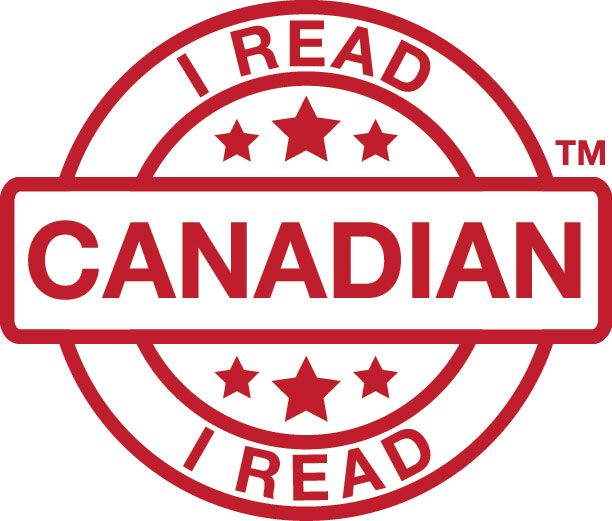My son’s middle-school language arts teacher initiated a reading project earlier this year. The task was simple: choose a book to read with an adult and talk about it. I’m on board with the assignment. Despite my efforts, there are a few entertainment systems vying for my son’s attention. When he chose me as the adult to read with him, I was thrilled.
The research behind the homework, his teacher explained, indicated that family engagement is a crucial part of developing literacy in our children. She cited a recent study, “Better Together on Behalf of Our Children.” The authors of the study organized a reading conference where families spent time “reading, listening to and perusing brand-new books that included many identities, cultures, experiences and perspectives.”
#I Read Canadian
Part of the fun of reading together is browsing for books — not an easy thing to do when local bookstores and libraries have been either open with limited capacity or closed. A search online for best young adult novels or word-of-mouth book recommendations often churns out the usual suspects.
So, it was a timely discovery to read about I Read Canadian Day, “a national day of celebration of Canadian books for young people.” The event includes a call to action to read Canadian for 15 minutes tomorrow and to share your experience with family and friends or on social media. Just enter #IReadCanadian on Twitter and boom! Young adult book recommendations abound.
Reading local
Reading campaigns like “I Read Canadian Day” are a good reminder to broaden our reading material. The study I cited above revealed that “rich literary experiences” — books with “racial, cultural and ethnic diversity” — motivated the children and families to read more. There was a local aspect to the study as well: readers valued books that resonated with them, books they could see themselves in.
“Reading Canadian is crucial, but even more so is reading books by Black, Indigenous and people of color in Canada, especially those published by small, indie presses. This is where young people will find the most cutting-edge ideas about how we can fight for a more just world,” said Fazeela Jiwa, acquisitions and development editor at Fernwood Publishing. (Jiwa also leads the Editors Canada Equity, Diversity, and Inclusion task force.)
Here in Winnipeg, Portage & Main Press specializes in educational resources in addition to Indigenous literature and regional history. “Much like other shop local movements, I Read Canadian Day encourages readers to support their local authors, artists and publishers by reading Canadian books. We have so many talented creators in Canada, and this is an opportunity to celebrate their work, as well as their unique perspectives,” said Laura McKay-Keizer, managing editor at Portage & Main Press.
Sharing book recommendations
When we read a good book, sometimes we want others to read that book too so we can talk about it. Having a day like this makes it easier to find and share Canadian booklists for both young adults and adults alike and to literally read Canadian.
“Orca is thrilled that this initiative has gained so much traction since it began,” said Kennedy Cullen, a marketing coordinator for Orca Book Publishers in Victoria, B.C. “We love to see the incredible breadth of Canadian authors, illustrators, and creators within the industry and the support they give to their colleagues in Canadian publishing.”
Which Canadian books have you or your families read recently? What’s on your booklist?
With thanks to Portage & Main Press, Fernwood Publishing and Orca Book Publishers, here’s a curated list of the latest top picks for young adults and children:
Portage & Main Press
All of the books below are by Indigenous authors.
YA titles:
- Road Allowance Era (Vol. 4 of A Girl Called Echo series) by Katherena Vermette, illustrated by Scott B. Henderson, colour by Donovan Yaciuk (HighWater Press, Apr. 9, 2021)
- From the Roots Up (Vol. 2 of the Surviving the City series) by Tasha Spillett, illustrated by Natasha Donovan (Highwater Press, 2020)
- Breakdown (Vol. 1 of The Reckoner Rises series) by David A. Robertson, illustrated by Scott B. Henderson, colour by Donovan Yaciuk (Highwater Press, 2020)
Children’s picture books:
- Stand Like a Cedar by Nicola I. Campbell, illustrated by Carrielynn Victor (Highwater Press, Feb. 23, 2021)
- We Dream Medicine Dreams written and illustrated by Lisa Boivin (Highwater Press, Apr. 20, 2021)
- The Frog Mother (Book 4 in the Mothers of Xsan series) by Hetxw’ms Gyetxw (Brett D. Huson), illustrated by Natasha Donovan (Highwater Press, Apr. 20, 2021)
Fernwood Publishing
- R is for Reparations by Global Afrikan Congress – Nova Scotia Chapter (Roseway, 2019)
- Papergirl by Melinda McCracken with Penelope Jackson (Roseway, 2019)
- Sacred Feminine: An Indigenous Art Colouring Book by Jackie Traverse (Roseway, 2016)
Orca Book Publishers
- Heads Up: Changing Minds on Mental Health by Melanie Siebert, illustrated by Belle Wuthrich (Orca Book Publishers, 2020)
- One Earth: People of Color Protecting the Planet by Anuradha Rao (Orca Book Publishers, 2020)
- Dreaming in Color by Melanie Florence (Orca Book Publishers, 2020)
- The World on Either Side by Diane Terrana (Orca Book Publishers, 2020)
- Blood Sport by Tash McAdam (Orca Book Publishers, Apr. 13, 2021)
- Heart Sister by Michael F. Stewart (Orca Book Publishers, 2020)
- Away Running by David Wright and Luc Bouchard (Orca Book Publishers, 2016)
___
Previous post from Lucy Payette: Editorial Headspace: A Year in Review
The Editors’ Weekly is the official blog of Editors Canada. Contact us.
Discover more from The Editors' Weekly
Subscribe to get the latest posts sent to your email.

